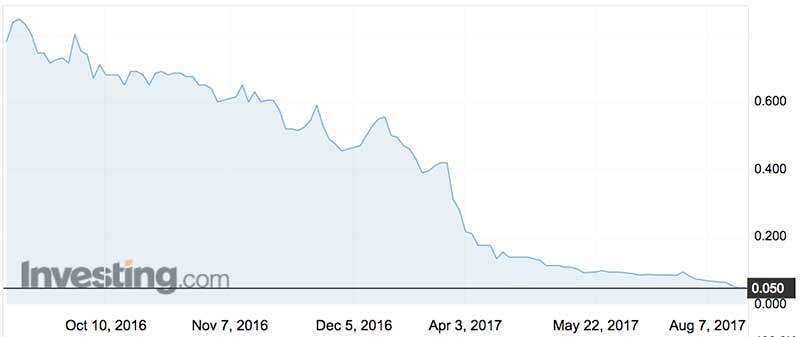Ding Sheng squeezes cash out of China but isn’t sure when there’ll be more

Pic: Morsa Images / DigitalVision via Getty Images
Ding Sheng Xin Finance (ASX:DXF) has finally managed to extract some of its hoard of cash out of China and into Australia.
Unfortunately, while it’s got one money transfer out of China, it can’t give any guidance as to when it might be able to get the next.
“The company has since commenced the process for a second transfer in order to make the payments needed to facilitate the completion of the review of its June 2017 accounts and commencement of the audit of its 31 December 2017 full year accounts and is awaiting that approval,” Ding Sheng told investors on Monday.
“Unfortunately the company is unable to give meaningful guidance on the timetable for these events at this stage.”
As a result, Sheng Xin is doing a strategic review of how the company can function, when its money is locked up in China.
In September the Chinese company pleaded ignorance of the difficulties of doing business in China as a reason why it wasn’t able to issue a half year report.
Ding Sheng sought a share suspension and is still not trading.
“Trading conditions in the guarantee markets in the People’s Republic of China have become increasingly difficult over recent times,” it told investors.

“The company has been experiencing an increase in defaults and the consequential requirement for it to lodge subrogation payments, and the December 2017 quarter saw a further increase in its requirements to lodge subrogation payments.
“This has resulted in an increase in the legal cases in which the company is involved, which further complicates the company’s application for approvals to transfer funds to Australia.”
subrogation
Ding Sheng’s December quarterly cashflow statements show it burned $54.3 million in the quarter, including $43.5 million in subrogation payments.
That left $1.4 million in the kitty, and expected costs of $895,000 this quarter.
- Bookmark this link for small cap breaking news
- Discuss small cap news in our Facebook group
- Follow us on Facebook or Twitter
- Subscribe to our daily newsletter
In May lenders took subsidiary PRC DSX to court over the default of an RMB 21 million ($4 million) loan it had guaranteed.
This means regulators are scrutinising the company to make sure it’s not trying to move money out of China to avoid obligations at home.
UNLOCK INSIGHTS
Discover the untold stories of emerging ASX stocks.
Daily news and expert analysis, it's free to subscribe.
By proceeding, you confirm you understand that we handle personal information in accordance with our Privacy Policy.








